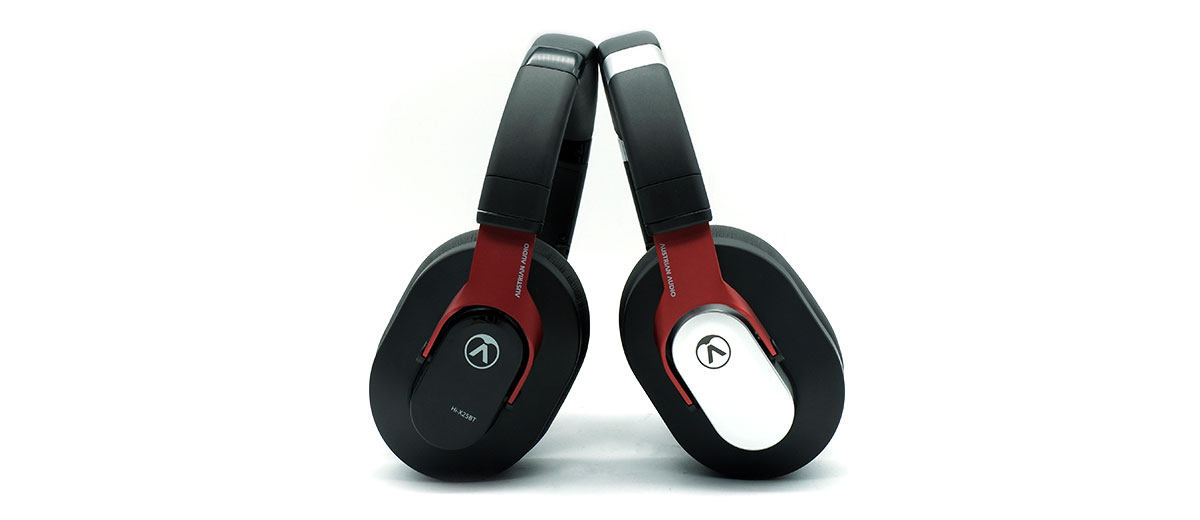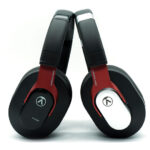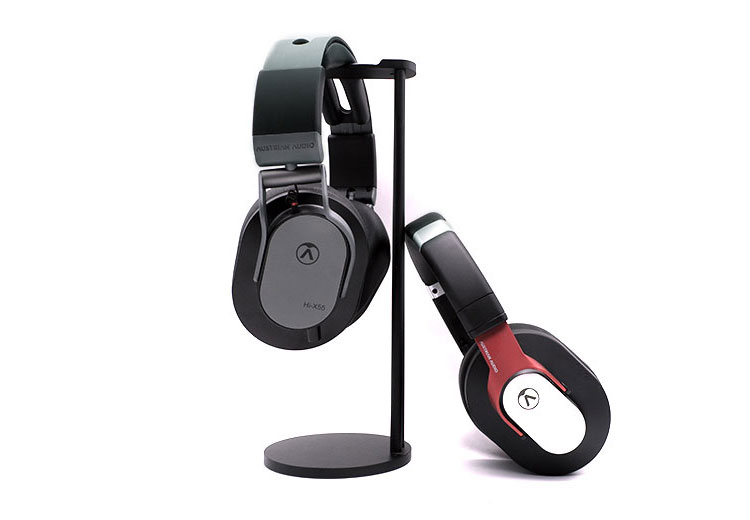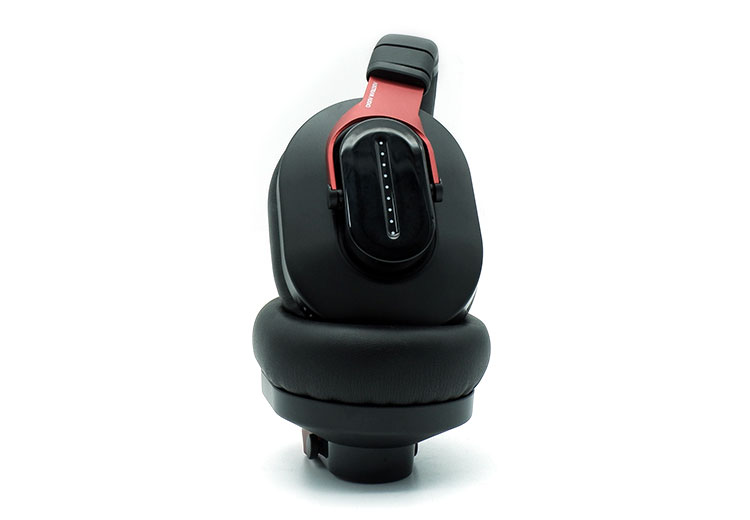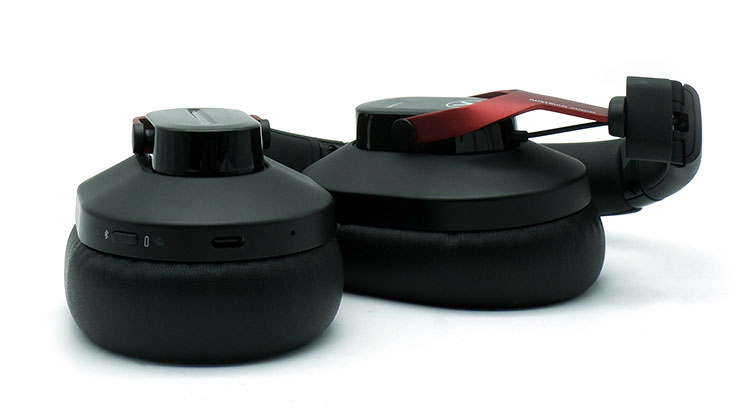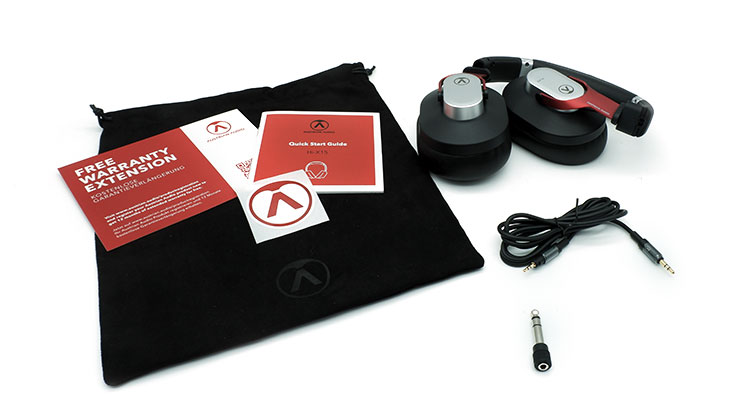The Austrian Audio Hi-X15 & Hi-X25BT (Bluetooth) are two competitively priced ‘high excursion’ 44mm dynamic driver closed-back headphones. They are priced at $119 & $179 respectively.
Disclaimer: The Austrian Audio Hi-X15 & Hi-X25BT were sent to us as samples in exchange for our honest opinion in this review. We thank Austrian Audio for this opportunity.
To learn more about Austrian Audio products reviewed on Headfonics you can click here.
Note, this 2-page review follows our new scoring guidelines for 2021 which you can read up on here.
Last year, Austrian Audio sent over their Hi-X55 closed-back circumaural headphone, which was one of the first products to roll out of their production line and also went on to be my reviewer’s choice awardee last year.
Despite being a relatively new company, Austrian Audio has since expanded its product portfolio to include an open-back headphone in the Hi-X65. This time, Austrian Audio has broken into a more consumer-centric headphone space with the Hi-X25BT Bluetooth headphone, and the Hi-X15 wired headphone.
Tech Highlights
Like their previous releases, both the Hi-X15 and Hi-X25BT utilize Austrian Audio’s Hi-X (High Excursion) driver which is a 44mm dynamic driver made of copper-clad aluminum. According to their research, 44mm is the optimal size for a dynamic driver since it remains rigid whilst still retaining a dynamic tuning.
Both headphones have drivers with the same specifications, which means that they both have an impedance of 25Ω, and an SPL of 113dB/V, which translates to around 99dB/mW.
This makes both the Hi-X15 and Hi-X25BT moderately hard to drive. Also common to both headphones is the use of memory foam earpads that remain comfortable for longer listening sessions.
Being a Bluetooth headphone, the Hi-X25BT has the additional Bluetooth 5.0 connectivity built-in, but the Bluetooth connectivity is limited to the SBC codec. Aside from a Bluetooth wireless connection, the Hi-X25BT can also be connected using a USB digital connection to make use of its internal DAC/amp.
Design
Aesthetics
The Hi-X15 and Hi-X25BT share a lot in common particularly with the headband structure itself which is mainly made of plastic.
However, there is a spring steel structure inside the headband to keep it rigid and reliable with leatherette and foam wrap to keep the headband comfortable.
Although the earpads are removable on both headphones, it isn’t the same clip-on earpad design that I’ve become accustomed to with Austrian Audio’s previous headphones. Instead, the earpads can be replaced by removing the foam in the middle of the earcup, then removing some screws that remove the front baffle of the earcup.
Both headphones also have the same adjustment mechanism, where the ratchet system is housed inside the headphone covered inside the plastic part. Just below the adjustment mechanism, both headphones also fold to make them compact enough for transport.
After the headband itself, both of them have red anodized metal yokes that keep the earcups secure. The yokes on both headphones articulate horizontally and vertically to maximize fitting and comfort levels on a wide variety of head sizes.
Ear Cups
The biggest difference between the 2 headphones is with the earcups. With the Hi-X15, they are just a plain smooth metallic silver finish with the Austrian Audio branding stamped on the back. On the left earcup, there is a 2.5mm locking jack for analog inputs, which is the only input available with the Hi-X15.
With the Hi-X25BT, the earcups are made of a gloss black finish, with the left earcup showing the Austrian Audio branding. The right earcup on the other hand has all the controls for the headphone, the earcup itself is a touch-sensitive area for control of volume, play/pause, and even activation of the google assistant.
At the bottom of the right earcup, there is a solitary button for power and mode which is flanked by a Bluetooth indicator and power indicator. Then there’s the USB-C input port and a mic.
Hi-X25BT Inputs
The Hi-X25BT has 3 input options, thus it is referred to as a hybrid headphone. The first mode is the most obvious, which is Bluetooth wireless mode but it’s only limited to the SBC codec.
The next option is using the USB-C port and connecting it to a compatible device such as a computer, or a smartphone. This then allows the use of the internal DAC and Amp section while taking in the signal from your computer.
Then the 3rd mode is using the provided USB-C to 3.5mm TRS cable, which allows the Hi-X25BT to be used as an analog headphone. So, this bypasses all the internal digital circuitry, allowing the use of an external DAC/amp or a DAP.
Hi-X25BT Controls
Despite only having 1 button on the Hi-X25BT, the controls are still easy to use. The button on the right earcup is a multi-function button that powers on the device, pressing and holding while the device is off will put the device in pairing mode.
To switch between Bluetooth or DAC input, simply press the button momentarily. Finally, holding the button for 3 seconds switches off the headphone.
When connecting the device in analog mode, the device simply has to be powered off, then connecting the analog cable will let the music go through the 3.5mm TRS cable.
More complicated controls are done with the touch-sensitive right earcup, where swiping up or down changes the volume. Tapping on the earcup will play/pause, double-tapping will go to the next track, then 3 taps will switch to the previous track. Then touching the entire earcup will activate the voice assistant.
Comfort & Isolation
Just like the Austrian Audio’s previous releases, the earcups seem small, but surprisingly, the earpads are designed so that the inner hole of the earpads can comfortably fit my ears. When I wear them, my ears don’t touch anything, so I’m not too worried about the size of the earpad opening.
When the headphones themselves are worn, they are fairly light at 270g for the Hi-X25BT, and 255g for the Hi-X15. The foam on top of the headband also helps ensure that there won’t be hot spots on top of my head when I wear the headphones.
While they fit comfortably, they are designed so that they remain secure because of the earcup articulation and the spring steel inside the headband itself.
While neither headphone has noise-canceling capabilities, both headphones isolate well in general due to the close-backed nature of the headphones. When worn, I can hear some background noise, but once the music starts playing, my surroundings are much less audible.
Stock Cable
Hi-X15
The Hi-X15 has a detachable 1.4m cable terminated in a 2.5mm TRS connection on the headphone side with a proprietary locking system. Fortunately, Austrian Audio also sells cables separately in case you need to roll for longer ones.
The length of the Hi-X15 cable is covered with rubber insulation that is soft enough to not produce too much cable noise while being rigid enough to keep its shape when it’s wound and kept in storage. On the other end of the Hi-X15 cable, it’s terminated in a standard 3.5mm TRS single-ended connection without any thread.
Hi-X25BT
While the Hi-X25BT can be thought of as a Bluetooth headphone, it also works well as a wired headphone. In fact, the Hi-X25BT comes with 2 cable options that can be used with the headphone.
The first cable option is a USB-C cable to USB-C cable that’s a bit shorter at around 1.2m long. This cable is a standard cable that can be used for charging as well as digital audio. The cable is soft and more manageable ensuring that it won’t be too noisy when you move your head around when listening to music.
Aside from the USB cable, the Hi-X25BT also comes with an analog cable that can be used with traditional DAC/Amps or DAPs. This cable feels pretty much the same as the cable that comes with the Hi-X15.
However, instead of a 2.5mm connection, this one is terminated with a USB-C connection, so it will be a lot harder to replace this cable if you ever need to.
Packaging & Accessories
Both the Hi-X15 and Hi-X25BT arrive come in Austrian Audio’s standard packaging, with both boxes secured with Velcro straps. The boxes then have cutouts inside that keep the headphones and accessories safe.
This time, however, both headphones have plastic protectors over the earpads to keep them from being compressed during transport and storage.
Hi-X15
Being a purely wired headphone, the Hi-X15 has a simpler set of accessories, as it only includes the headphone itself, a carrying pouch, the cable, a 3.5mm to ¼” adaptor, the manuals, and an Austrian Audio sticker. Adding in a ¼” adaptor ensures that the Hi-X15 will be easily integrated into most systems.
Hi-X25BT
As with most Bluetooth headphones, I wasn’t expecting much in terms of accessories, but the Hi-X25BT came with a bit more than I expected. The first thing that comes in the box when you open it is the pouch that hides the headphones from view.
Then underneath there are the 2 available cables, which are USB-C to USB-C and USB C to 3.5mm TRS terminated. Also included are some adaptors, such as a USB-C to USB-A to directly connect the cable to more traditional laptops and desktops, and a 3.5mm to ¼” TRS adaptor for amps.
The Hi-X25BT also comes with an Austrian Audio sticker and a manual that mainly show diagrams instead of words. This makes browsing everything much quicker to understand including the different modes and controls available with the Hi-X25BT.
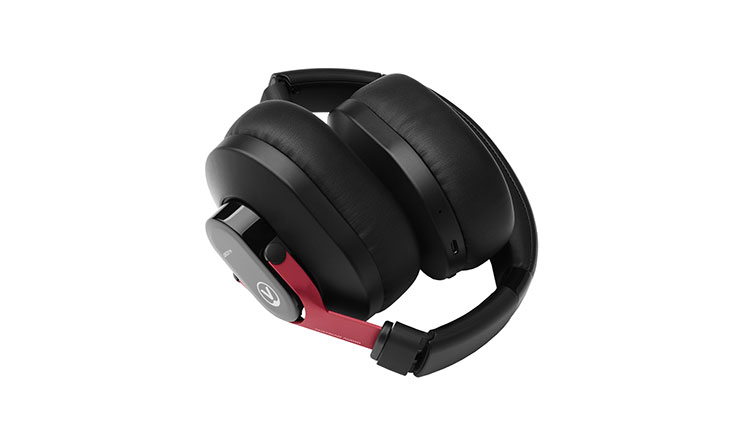
Bluetooth Connectivity
Based on the specs, the Hi-X25BT is limited to just the SBC codec, which is the standard codec that doesn’t allow for the transmission of hi-res files. However, when it comes to stability, the Hi-X25BT easily maintains a stable connection even when I’m 9 meters away from my phone with a wall in between.
Phone calls are also generally stable, and I can be heard on the other end of the line. While the Hi-X25BT didn’t implement any fancy Bluetooth codec or noise-canceling technology, I’m surprised at how stable and quiet the Bluetooth implementation ends up being.
When it comes to watching videos, there is no noticeable latency despite using the SBC codec. I was able to get around 10mS of latency but it’s barely noticeable in real-world applications.
Battery Life
On the specs sheet, the Hi-X25BT posts an impressive 30 hours of battery life, which translates to being able to run in for 1 whole day and more, so long haul flights are a cakewalk for the Hi-X25BT.
In my testing, I believe that the HI-X25 can reach the claimed battery life, I believe this is partly due to the more conservative battery consumption demands of the SBC codec.
Click on page 2 for sound impressions, pairings, and select comparisons

